I left the 2013 Pickathon music festival with a healthy layer of grime, some new dishware and utensils, an exhausted toddler (the same one that we brought with us; don’t worry), and a new enthusiastic outlook on what the music festival format was capable of. What I didn’t come away with were too many notes; I was more focused on taking in the environment in real time than I was on jotting down thoughts about what I was experiencing as reference for this article. For the most part, all that I really have scrawled in my notebook are the beginnings of two very poor analogies, both of which fail to sum up the experience of a three-day life-affirming adventure through what is, undoubtedly, the most impressive, respectably run, and eye opening music festival in modern history. But, since Pickathon, held on the Pendarvis family’s private, 80-acre organic farm, 15 minutes out of Portland in Happy Valley, Oregon, maintains such devotion to the concept of sustainability, I’ll try to salvage something from that otherwise wasted page-and-a-half of mini-notebook paper and scribbled ink, for no other reason than the promotion of waste reduction. [The endless words that I’m wasting here are less of a priority, being that they are of the electronic sort.]
Bad Analogies:
So here we go, let’s see what we have here… Experiencing the Pickathon Music Festival is like doing cocaine for the first time (yep, I actually wrote that). It’s a little more expensive than the other things that you may have tried, and while the people you know who have done it seem really psyched about experiencing it again, it’s hard to understand what the hype is all about. At first, it’s not terribly unpleasant, but it doesn’t hit you as hard or intensely as you expected, so you just relax into it, assuming that everything might have been slightly overblown. The next thing that you know, you realize that you are so relaxed that you want to have a conversation with everybody about what you are experiencing and, even more so, how you wish that you were as clear and “centered” in your everyday life. At the end, you want to do this all of the time. The main difference is that, when you leave Pickathon you are rejuvenated and you feel good about yourself, rather than feeling like shit and hoping that you never run into those strangers that you’ve been speaking to ever again. There’s a stride of triumph, rather than a stumble of shame.
The second analogy is more of the contrast that Pickathon apart from that of a National Rainbow gathering, the annual convention of hippies, transients, and Dead Heads who descend on National Forest land throughout the weeks leading up to and following the Fourth of July weekend to barter with crystals, live in their own filth, cook from the earth, and drink matte through dirt-caked bombillas. Pickathon encourages beer drinking and even has a variety of high quality $4 pints available from local breweries, along with ciders and wine. The gathering, on the other hand, rejects alcohol as the cause of belligerence, unofficially relegating all usage to “A” (alcohol/agro) Camp, where tweekers do shit like smash out van windows. Meanwhile, junkies pass out by trees, while their dirty kids scramble around cutting their feet on rocks. The gathering also rejects the exchange of money and consumerism, yet a veteran camp has no issue with hitting up some wide-eyed newbie for his life savings to go pick up supplies from “Babylon” “for the good of everyone.” The 2000 gathering in Missoula, which I attended, was reported as leaving approximately 56 pets behind abandoned and/or injured and, as with all of the gathering, the environment was ultimately damaged by the thousands of obliviously idealistic attendees that invaded it, leaving locals weeping. Pickathon seems to be more self-ware, while being less self-involved. There is a complete lack of pretentiousness involved in their sustainability efforts and participating in them feels surprisingly natural. Although a small-scale experiment, it makes one feel that sustainability efforts on a larger scale are not only logical, but entirely feasible. There are no feelings of being shamed or elitism, if you’re doing it “wrong”; both the effectiveness and ease are incredibly “organic.”
But that may be the best way to describe what Pickathon is, by explaining what it is not. And that is also why there aren’t any sufficient analogies for what the festival provides, because there really is no precedent.
The Food Scene and amenities:
The festival estimates that they’re reducing 25 percent of waste through their cup and token systems. Believe it or not, there is absolutely no garbage on the ground, either during or after the festival has ended. Attendees can either bring and carry their own dishes, which can be cleaned at a washing station, or purchase a token for $10. The token is given to vendors which serve the food in a large Pickathon bowl (portions seem substantially larger as well) with bamboo flatware. Once used, the dish can be returned to the station in exchange for new token, so that the process can continue. At the end of the festival, you can simply bring your commemorative wares home with you.
An aluminum Klean Kanteen cup can also be purchased for $6 and be filled at any of the various alcohol retailers. Of course, your own cup can also be used. As a member of the media, I was treated to free beer, as were the performers. This is a true trickle-down theory in practice, because the artists’ performances reflect the tremendous time that they are having and the free beer doesn’t hurt this review either.
Regular concert goers benefit, as well. Throughout the weekend, I enjoyed such foods as homemade biscuit, egg, and meat sandwiches ($6) and a Korean BBQ fusion burrito ($8), all incredibly delicious and affordable. Besides alcohol and food (vegan and gluten-free options available), there is also a local coffee roaster serving drinks on site. Most important is the fact that free filtered water is made readily available to everyone.
Showers are also featured onsite, as well as massages, ice cream, and more.
The Music / Highlights:
While the name Pickathon might imply that this is a bluegrass and Americana focused event, that’s definitely not all that they provide.
On the first day, White Fence (not the East LA street gang, but Tim Presley’s prolific San Francisco neo-psych project) put on an impressive set on the Fir Meadows stage and a tipsy Sallie Ford, a regular at the fest, fronted her local outfit, The Sound Outside, by demonstrating how her previously old-timey vibe, albeit well-performed, has nicely mutated into a more contemporary and unique sound, since I caught her at last year’s Sasquatch Music Festival. These groups performed back to back on each of the two main stages, respectively—White Fence on the Fir Meadows and Ford on the Mountain View Stage—which are positioned adjacent to each other. This allows one act to set up while the other is performing, so that, when one finishes, the next can start immediately and the audience needs only to shift their attention to one side or the other. Both Ford and Presley could be found meandering around the premises throughout the weekend, while primly dressed big name, Andrew Bird only appeared selectively backstage, all the while shadowed by a documentary film crew.
Later that night, down a long trail that was lit by elaborate hanging lanterns through the campground, Bird could be found manning his fiddle accompanied by Tift Merritt, a fellow singer-songwriter and Pickathon performer, in her own right. They performed on the appropriately titled “Woods Stage” which is constructed into a dome of arching and intertwining branches, resembling what can most aptly be described as Endorian or Ewok-esque. This was a must-see set for many, but it was packed and the film crew made it so that, even those of us back/side stage, had limited view of the performance.
The real standout came at 1am on a small setup by the food area called the Starlite Stage, which kicked off nightly after the nearby main stages closed down. Marco Benevento’s newfangled jazz experimentations weren’t an initial draw for many attendees, but that only meant that they were just that more surprised when their minds were blown. Ween bassist, Dave Dreiwitz is now playing with Marco and the trio really threw down at that late night set, at one point pulling the giant tiger head off of Benevento’s piano and taking turns wearing it as they tore through solos.
We spent the majority of the second day posted up on the burlap-covered hay bales at the Woods Stage. From there we saw Sharon Van Etten perform one of the last shows of her year-and-a-half-long tour, supporting her break out album, Tramp (the very last show would take place on the Mountain View Stage the following day). I finally got a chance to speak with her, as I first became acquainted with Van Etten as a publicist for Ba Da Bing records who had contacted me about setting up an interview with Michael Morley (The Dead C, Gate) some years ago. I’m happy to report that her personality is as engaging as her music.
Later, Ty Segall took the stage with an unorthodox setup. With Ty Segall Band bassist, Mikal Cronin fronting his own outfit, which includes the band’s drummer, Emily Rose Epstein, guitarist Charles Moothart filled in behind the kit. The rest of the lineup was all acoustics guitars. There was none of the usual stagediving or flailing solos on his back, but rather a set that truly showcased Segall’s songwriting abilities in a way that I’ve never seen him before. During the show, Pickathon founder, Zale Schoenborn informed me that it might be the only time that specific formation would perform together.
But, as for once in a lifetime experiences that you won’t find anywhere else, Feist’s following acoustic performance on the Woods stage took the cake. The intimacy was palpable, with the woman next to me sobbing her goddam eyes out. Feist explained that it was the first time that she’s played a solo acoustic set in seven years. Midway through, she was joined by her drummer and pianist, with her climbing onto the upright like a scene from The Fabulous Baker Boys to croon out “Limit to Your Love.” The whole scene is difficult to describe, but the barrier between audience and performer seemed non-existent.

After my lady and our two-year-old son turned in for the night, I hit up a solid late night set by Kurt Vile on the Starlight Stage, followed by Parquet Courts in the Galaxy Barn. The Galaxy barn features lighter, folkier acts during the day, but shifts to rowdier sets at night. Nearby is an open court-like area that hosts interactive circus activities, complimenting the child-friendly acts at the Workshop Barn during the day. At night, however, it becomes a 21+ venue with flowing beer, a giant screen projecting the Galaxy Barn sets outside, and a bonfire surrounded by everyone from festival volunteers to performers like King Tuff and Ty Segall.
Parquet Courts put out a high energy display of proto to post-punk aggression in a barn that looked like something off of American Pickers. They won the crowd over and eventually had them screaming for an encore, although they had run out of tunes. Returning to the stage, bassist Sean Yeaton started out by briefly playing the opening bassline for Sleep’s “Dragonaut,” stating that it was for me, because I had been wearing a T-Shirt for the stoner rock pioneers in the front of the crowd all night. Great first experience seeing those guys, and they were just as good on the Fir Meadows stage the following day.
And that’s another thing that’s so great about this festival, every act plays at least twice during the weekend, not to mention the random and impromptu jam sessions that they’ll put on in areas throughout the property. You’re never at risk of missing a set due to everyone that you want to see being scheduled at the same time. Day 3 involved us catching The Felice Brothers, as well as seeing Sharon Van Etten, Kurt Vile, Parquet Courst, and Feist Again, this time on the larger stages. Feist’s second set was a much more sonic affair, backed by giant screens, but equally impressive.
The Breakdown:
Throughout the weekend, I saw Portland musician, Neal Morgan (drummer for Joanna Newsom and Bill Callahan) hanging out backstage, as well as Fred Armisen. I even saw some crazy chick that hates and tried to protest me (yep, me… as an individual person) back when I attended The Evergreen State College in Olympia, Wa, but we didn’t catch up. After watching the Parquet Courts set, Armisen walked out front among the common folk to watch Feist. He was incredibly polite and genuine, almost to the point of it feeling like a character. We spoke about how great the festival was. Later, Feist made use of the term “Portlandia” and I looked to my left to see him still standing in the middle of the packed crowd gazing forward like everyone else. Feist declared that she was also coming to the end of her own tour and that she wouldn’t tour again until she completed a new album, but later canceled that out by claiming that she’d come back and play Pickathon next year. She had already stated that it was the best festival that she had ever been to.”
This was the general sentiment that seemed to come from every performer that we saw, they were all in awe of the entire environment. There was no security or law enforcement, yet I’ve never been less concerned that somebody was going to loot my shit. Aside from a couple of yapping teens that last night, hardly any one even got on my nerves—keep in mind that everybody pisses me off. I was incredibly leery about taking my 23-month-old son to a music festival for three days, but everyone that told me that it would be alright, were all right. No risk of dehydration. No issues. Not even any real crowds. The price went up this year so that they could reduce the ticket sales, limiting them to 3,500 and retaining the intimate environment (they could easily sell three times that many). I spoke to Zale a couple of times throughout the weekend and, besides clearly enjoying the fruits of his labor, he seemed genuinely interested in my personal experience with and opinions about the festival. 15 years in and they are still trying to make sure that it’s the best possible festival that that it can be. Pickathon is the type of experience that you instantly want to tell the world about, then second guess, and then feel guilty about second guessing for trying to keep it all to yourself.
(Christopher Altenburg)















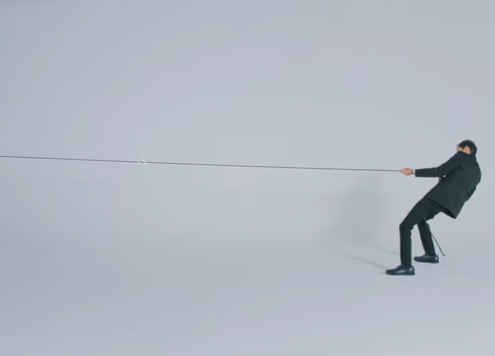
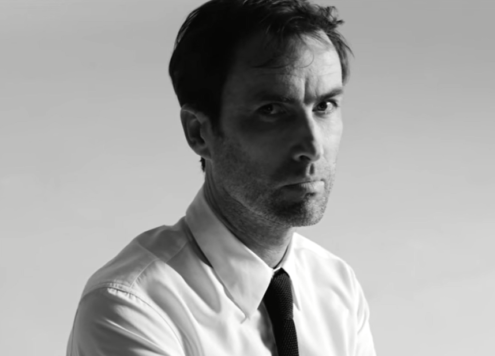
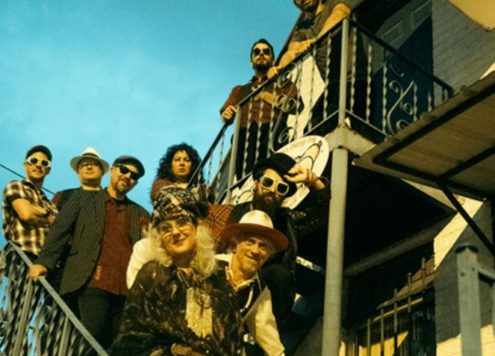
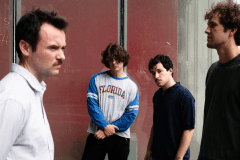
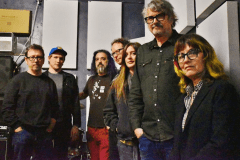
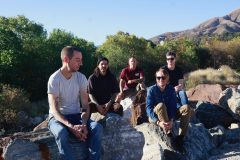
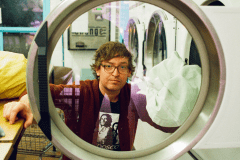

Social Media